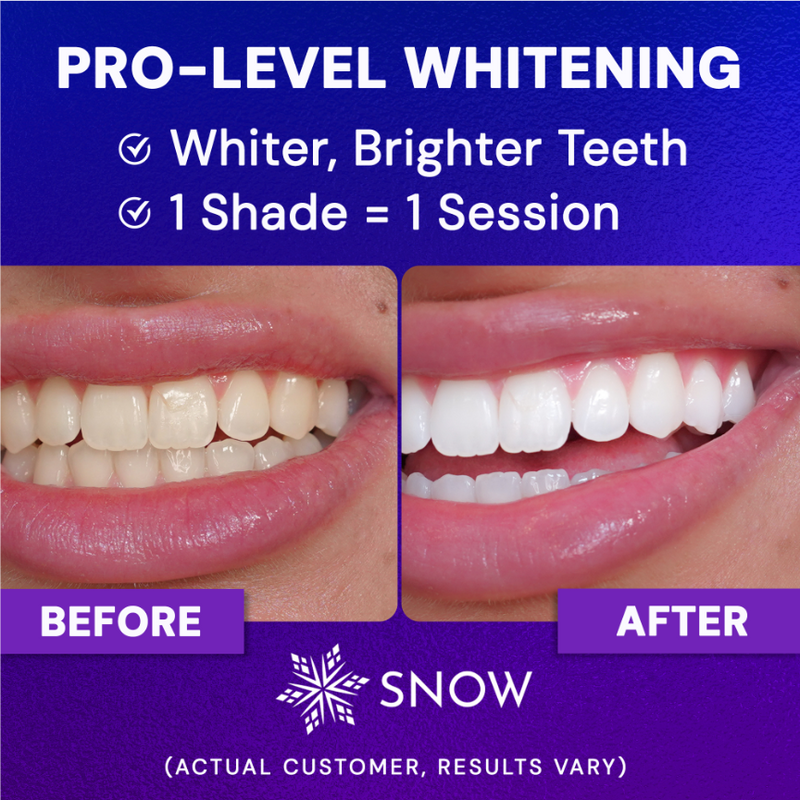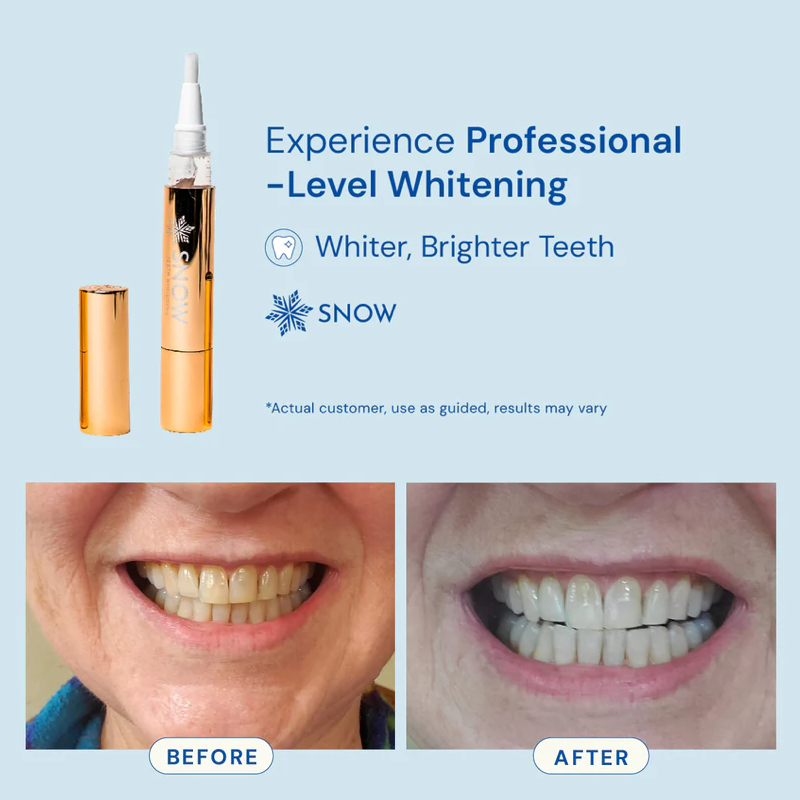If you're experiencing pain and swelling in the back molars of your mouth, you may have pericoronitis. Pericoronitis requires proper treatment to ensure it doesn't develop into a severe, life-threatening infection.
If you suspect you have pericoronitis in your wisdom tooth, promptly schedule an examination with a dentist or periodontist.
WHAT IS A PARTIALLY ERUPTED WISDOM TOOTH?
The wisdom teeth are the last permanent teeth to erupt through the gums in the mouth. Also known as the third molars, wisdom teeth break through the gum tissue between the ages of 17 and 25, although some people never get them at all.
In some patients, the wisdom teeth erupt normally, without an issue. However, many patients don't have room in their mouths for a new wisdom tooth, so they become impacted, erupting only partially or not at all.
When a wisdom tooth only partially erupts, then pericoronitis may occur, leading to inflammation and infection of the tissue around the impacted wisdom tooth.
WHAT IS PERICORONITIS?
Pericoronitis is the inflammation of the gum tissue around a wisdom tooth. Most often, patients who develop pericoronitis have an impacted or only partially erupted wisdom tooth. Pericoronitis is more common in the lower molars, and often patients with pericoronitis have gum tissue covering the crown of the affected tooth.
WHAT CAUSES PERICORONITIS?
When wisdom teeth are impacted, they may develop an operculum, a gum flap of soft tissue growth over the partially erupted tooth. The operculum creates a space where bacteria can grow next to the tooth, causing swelling, redness, and infection.
Food particles, plaque, and bacteria hidden in the operculum can lead to pericoronitis. Additionally, pericoronitis can develop due to trauma to the operculum. For example, if a patient crushes a gum flap with the opposing tooth, the area can swell, become irritated, and eventually become infected.
In severe pericoronitis cases, the swelling and infection can spread beyond the gum tissue to the jaw, cheeks, and neck.
WHAT IS THE DIFFERENCE BETWEEN CHRONIC AND ACUTE PERICORONITIS?
Pericoronitis is often classified as either chronic or acute. Chronic pericoronitis may result in no symptoms or only mild symptoms. In contrast, acute pericoronitis causes many symptoms, including severe pain or an acute infection, such as an abscess.
Patients with chronic pericoronitis may have few symptoms, with flare-ups of acute pericoronitis symptoms for three to five days at a time. All symptoms of pericoronitis should be clinically evaluated by a professional dentist.
WHAT ARE THE SYMPTOMS OF PERICORONITIS?
Patients experiencing pericoronitis can have either acute, short-term, or chronic, ongoing symptoms. Acute pericoronitis symptoms include:
- Severe pain
- Swelling in the gums
- Pus
- Difficulting opening your jaw
- Lockjaw
- Fever
- Loss of appetite
- Swollen lymph nodes
Chronic pericoronitis symptoms include:
- Dull ache in the infection area
- A bad taste in the mouth
- Halitosis, or bad breath
- Swollen lymph nodes
Patients experiencing severe symptoms of pericoronitis, such as facial swelling, swollen lymph nodes, and jaw spasms, should see an oral surgeon or dentist immediately. Severe symptoms indicate that the infection has spread to the throat and neck, which could be life-threatening.
ARE THERE CAUSES OR RISK FACTORS THAT LEAD TO PERICORONITIS?
According to the Irish Dental Association, over 80% of pericoronitis cases occur in patients between the ages of 20 and 29. The condition most commonly presents in patients whose wisdom teeth haven't erupted properly. Risk factors for developing pericoronitis include:
- Poor oral hygiene
- Excess gum tissue
- Fatigue
- Emotional stress
- Pregnancy
- Upper respiratory tract infection where virus or bacteria affects the sinuses and throat
Men and women are at equal risk for developing pericoronitis, and overall health concerns do not contribute to the infection.
HOW IS PERICORONITIS DIAGNOSED?
Pericoronitis is often diagnosed by a dentist during clinical evaluation. First, the dentist will examine the emerging wisdom teeth and check for signs and symptoms of pericoronitis. Some acute symptoms they'll look to identify are swollen gum tissue, draining pus, and a gum flap that may trap food debris.
Additionally, a dentist may take X-rays of the wisdom tooth to rule out more severe symptoms, such as spreading infection and dental decay.
TREATMENT OPTIONS FOR MILD PERICORONITIS
Patients experiencing mild symptoms of pericoronitis can start with home remedies to alleviate the soft tissue swelling and pain.
Some treatment options include rinsing and gargling warm salt water, taking over-the-counter pain relievers, gently brushing and using a water pick on the upper and lower wisdom teeth to flush out food debris and bacteria, and practicing good oral hygiene.
If these measures don't improve the pain and inflammation around the third molars within three to five days, patients should see a dentist or oral surgeon for diagnosis and treatment.
TREATMENT OPTIONS FOR MODERATE TO SEVERE PERICORONITIS
Treating pericoronitis can be difficult because patients with a gum flap cannot fully resolve the wisdom tooth infection until the erupting tooth breaks through or the involved tooth is removed. Treatment for pericoronitis often falls into one of three categories:
- Managing symptoms
- Removing the soft tissue covering the affected wisdom tooth
- Tooth extraction
Choosing the methodology to treat pericoronitis depends on the patient, the symptoms, and the severity of the pericoronitis.
MANAGING SYMPTOMS OF PERICORONITIS
Suppose the infected wisdom tooth is partially erupted and should fully erupt on its own. In that case, a dentist may opt to manage the symptoms of pericoronitis while waiting for the tooth eruption.
In that case, as part of the clinical evaluation of the pericoronitis, a dentist may apply a local anesthetic to the wisdom tooth and then thoroughly clean and flush the soft tissues surrounding it, removing accumulated food particles, draining pus, and further evaluating the severity of the infection.
Then, the dentist may prescribe oral antibiotics for swelling or infection, over-the-counter pain relievers to manage acute pericoronitis symptoms, and meticulous oral hygiene to prevent the buildup of plaque and food particles. Additionally, some dentists may prescribe an oral antibacterial rinse to clear the infected area.
OPERCULECTOMY OR WISDOM TOOTH SURGERY
If the dentist decides oral surgery is the best option for treating pericoronitis, they may refer the patient to an oral and maxillofacial surgeon. The oral surgeon will determine whether the best option is to remove the gum tissue covering the tooth or remove the tooth itself.
Determining whether to remove the tooth or the swollen gum tissue covering the tooth can pose a clinical dilemma. Removing the operculum is a minor oral surgery, and patients don't require general anesthesia. However, an operculum can grow back, and the patient can develop chronic pericoronitis, requiring further treatment.
Extracting the affected mandibular third molar is a preferred choice in cases where the tooth is wholly or partially impacted, and there is little chance of the tooth erupting on its own. Then, the surgeon typically extracts all wisdom teeth to prevent pericoronitis from developing in the other mandibular third molars.
ORAL SURGERY AFTERCARE
After either an operculectomy or a wisdom tooth extraction, resting, cold compresses, and conscientious oral hygiene are essential for a full recovery. Following a wisdom tooth extraction, the surgeon will pack the resulting oral cavity with either a simple or a medicated dressing.
The dressing protects the site and exposed bone from irritation, food particles, and bacteria while the healing process is underway and should be kept in place for a few days. In addition, your surgeon may provide you with an oral antimicrobial rinse to keep the surgical site clean.
Lastly, for the first three to four days after surgery, you should limit your diet to soft foods like pasta, pudding, and yogurt. Cold foods, like ice cream or popsicles, may soothe any swollen tissue.
Patients should avoid spicy, crunchy, or chewy foods, as these foods can irritate the soft tissues. Also, avoid drinking with a straw for at least a week, as the suction can dislodge blood clots and slow healing.
HOW DO I KNOW IF I HAVE PERICORONITIS?
Pericoronitis can easily be confused with other oral infections, such as gingivitis or periodontal disease. While these conditions have overlapping symptoms, their causes and treatments are different.
PERICORONITIS VS. GINGIVITIS
While pericoronitis solely affects the gum tissue around the third and final set of molars, gingivitis can target all gum tissue. Both pericoronitis and gingivitis result in swollen, irritated gums. However, pericoronitis is an infection, while gingivitis is inflammation in the gums.
Both gingivitis and pericoronitis cause gums to swell and become irritated. However, gingivitis results in gums that bleed easily, while patients with pericoronitis may instead develop pus in the swollen tissues around their partially erupted tooth.
When left untreated, both gingivitis and pericoronitis can lead to more severe conditions. Untreated chronic pericoronitis may lead to an infection that spreads within the head, neck, or throat, while untreated gingivitis can lead to periodontitis.
PERICORONITIS VS. PERIODONTITIS
The symptoms of pericoronitis and periodontitis also overlap because pericoronitis is a form of periodontitis. Both conditions cause inflammation, a bad taste or bad breath in the mouth, and the potential to develop a severe infection.
Additionally, pericoronitis and periodontitis can become life-threatening when the chronic symptoms of the conditions go untreated.
However, pericoronitis is centralized to the third molars, while periodontitis can affect all teeth. In addition, extracting the affected tooth resolves pericoronitis, while fighting periodontitis often requires ongoing treatment and surgery.
CAN PERICORONITIS RESOLVE ON ITS OWN?
Unfortunately, molar pericoronitis cannot resolve without treatment. The infection from the buildup of food debris and bacteria will continue to spread, leading to more severe conditions. One condition resulting from pericoronitis is Ludwig's angina, an infection that spreads under the jaw and tongue.
HOW TO PREVENT PERICORONITIS IN THE WISDOM TEETH
Preventing pericoronitis can be as simple as practicing conscientious oral hygiene and paying close attention to your oral health.
Additionally, as you begin to feel a mandibular third molar begin to erupt, you can schedule a visit with your dentist for X-rays and to discuss early extraction in case of a partially erupted wisdom tooth.
HOW CAN I PROTECT MY GUM TISSUE WITH ORAL HYGIENE?
Proper oral hygiene can protect your teeth and gums from infections and costly dental procedures. In addition, simply maintaining regular, biannual dental checkups can significantly improve your oral health.
Beyond what the dentist can do for your oral health, you can improve the appearance and health of your teeth and gum tissue by brushing your teeth twice a day with an electric, soft bristle toothbrush, and fluoride toothpaste. Patients who use an electric toothbrush have healthier gums and less tooth decay than those who use a manual toothbrush.
Lastly, regular flossing or Waterpik use significantly reduces plaque buildup and fights mild gum disease better than brushing alone.
Frequently Asked Questions
Can Pericoronitis go away on its own?
Pericoronitis does not go away on its own. If left untreated, it can become dangerous in a matter of weeks. Typically, either the tissue flap or the wisdom tooth must be removed. If an infection is present, an antibiotic will also be required.
What is the fastest way to cure pericoronitis?
The most effective cure for pericoronitis is removing the affected wisdom tooth. However, you can alleviate the symptoms of acute pericoronitis by rinsing and gargling with warm salt water, taking over-the-counter pain relievers, and flossing or using a Waterpik to remove food debris from the swollen gum tissue.
Is pericoronitis life threatening?
Pericoronitis can progress to abscess if left untreated. When this occurs, the infection has the potential to spread to other regions of your body. It can potentially be life-threatening in extreme circumstances.
How do I know if I have pericoronitis?
Pericoronitis symptoms include aching, swelling gum tissue near the impacted tooth. It may be difficult to bite down in that place without damaging the swelling tissue. You may also notice an unpleasant odor or taste in your tongue, as well as pus discharge in the region.
YOUR ORAL HYGIENE IS ESSENTIAL TO YOUR OVERALL HEALTH
Taking care of your oral health allows your body to manage the bacteria in your mouth, keeping it from developing into an oral infection.
When patients fail to maintain their oral health by skipping dental appointments, not flossing, or not brushing their teeth thoroughly, bacteria in the mouth can begin to build up, resulting in oral infections that can lead to health concerns throughout the body.
Poor oral health has been linked to cardiovascular disease, endocarditis, and pneumonia. Pericoronitis left untreated can result in severe, life-threatening conditions, such as sepsis, where the infection spreads into the bloodstream.
Young adults developing their wisdom teeth are at a higher risk of developing pericoronitis. So patients in their 20s, especially, need to take meticulous care of their oral health and maintain regular dental exam appointments to protect their teeth and gums from pericoronitis and other oral conditions and infections.
It's time to prioritize your oral health, so you can reap the benefits of a bright, healthy smile for years to come. Snow offers a wide range of products to support oral health and give you a smile you'll look forward to showing off. Try Snow now!








































































